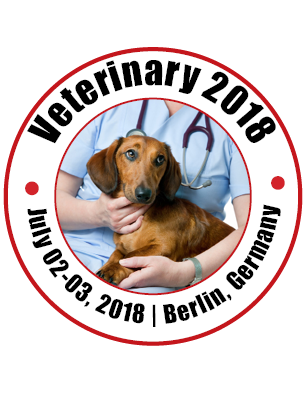Sarnarinder Singh Randhawa
Khalsa College of Veterinary & Animal Sciences, India
Title: Recent advances in production diseases of dairy animals during transition period with special reference to usage of herbal medicines for their control and management
Biography
Biography: Sarnarinder Singh Randhawa
Abstract
Production diseases are a group of conditions previously termed as metabolic diseases, some of which were well known and extensively studied but others less so, with majority being due to input and output deficit, or, in other words, to inadequate intake of the various nutrients needed for production. Roots of production diseases lie in the interaction between the animal’s physiology and the environment in which it lives. In addition to the traditional metabolic disorders in dairy cows like milk fever and ketosis, production diseases now encompasses hepatic lipidosis, subclinical acidosis, mastitis, endometritis, retained placenta and other post parturient reproductive disorders, and feet and leg abnormalities inducing lameness, such as laminitis and digital dermatitis. Transition period is often considered to occur from three weeks pre-partum to three weeks post-partum, as during this time frame homeorhetic regulation of metabolic functions is necessary in order to accommodate demands of parturition and lactogenesis. Recently, studies have shown that proper nutritional management during early dry period is important for maintaining health and productivity of transition cows. There is restricted availability of energy sources due to decreased dry matter intake (DMI) (decreases up to 30%) in the last three weeks of gestation and thus becoming the major factor for negative energy balance during a time of increased demand. Keeping in view the importance of production diseases in dairy industry the future research is more focussed towards prediction and prevention ideology. Generally veterinarians use various allopathic medications to treat each production disease, but there are variable responses and adverse effects related to dose, drug interaction and anaphylactic reactions. To overcome these problems, herbal supplementation is one of the alternatives, as there is less chance of toxicity, easy availability and also economical. Indian subcontinent is full of plant species having medicinal values, thus, researchers all over world are evaluating various herbal formulations for improving immunity, reducing oxidative stress, infections and improving milk production, shelf life as well as calf health which are the future producers. Extensive trails were undertaken to evaluate efficacy of herbal vitamin E- Selenium (E-Sel POWER, Indian Herbs Specialities Pvt Ltd., Saharanpur, India) for prevention of oxidative stress and mastitis. Similarly, comprehensive studies were also undertaken on herbal biocholine and LivoLiv-250 (Indian herbs Specialities Pvt Ltd., Saharanpur, India) for prevention and treatment of ketosis and hepatic lipidosis. The results were based on comprehensive evaluation of various hemato-biochemical parameters, plasma mineral profile, milk quality along with ultrasonographic evaluation of back fat thickness (BFT) and liver. Studies revealed promising results of these herbal formulations at specific doses.

